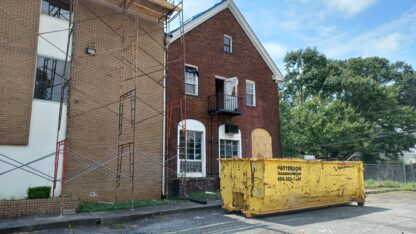How to watch the solar eclipse in Atlanta

Atlanta isn’t in the path of totality for Monday’s solar eclipse. But that doesn’t mean there won’t be anything to see here.
Totality is a unique experience. The moon completely shadows the sun. The sky gets dark and the temperature drops. Stars come out. Animals respond like night is falling.
That’s not what’s going to happen here. (Though there was a total solar eclipse in part of Georgia several years ago.)
There will be a partial solar eclipse in the Atlanta area on Monday. It won’t get noticeably darker outside, but it will look like the moon has taken a bite out of the sun.

When to watch
For viewers in Atlanta, the moon will begin eclipsing the sun at 1:45 Monday afternoon. The eclipse will reach its max at 3:04 p.m., when just over 80% of the sun will be in shadow.
See NASA’s interactive eclipse map
How to watch
It’s not safe to look straight at the sun at any time during the partial eclipse. Be sure to wear eclipse glasses; regular sunglasses won’t cut it.
If you don’t have eclipse glasses on hand, there are other ways to see it:
- Poke holes in a piece of paper and look at the shadows cast on the ground. Instead of round circles of light shining through, you’ll see a crescent sun shape. You can use a colander to do this, too. Or cross your fingers from one hand over the other with spaces in between and look at those shadows. Even look at the shadows cast by the leaves of trees; they will show crescents, too.
- Go to a local eclipse viewing event. Among the options:
- Some school districts are making plans for safe viewing for students.
- Fernbank Science Center in DeKalb County is holding a festival with food trucks, planetarium shows and hands-on activities.
- West Atlanta Watershed Alliance is hosting an event at the Historic Atlanta Black Cracker Practice Field with crafts.
- Tellus Science Museum in Cartersville will open its observatory so people can watch the eclipse with the solar telescope. There will also be arts and crafts projects.
- Watch online. NASA will have multiple streams available: With commentary, without commentary and in Spanish.
If you miss this one, the next total solar eclipse will cross Greenland and parts of Europe in 2026. There won’t be another total solar eclipse visible in the United States until 2044.








